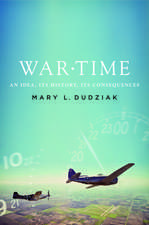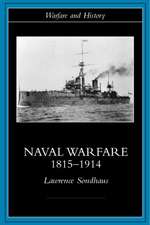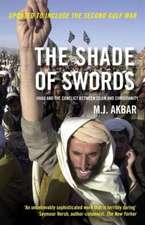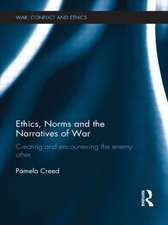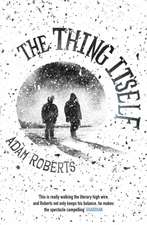Selective Security: War and the United Nations Security Council since 1945: Adelphi series
Autor Adam Roberts, Dominik Zaumen Limba Engleză Paperback – 31 iul 2008
The Council’s selectivity is generally seen as a problem, even a threat to its legitimacy. Yet selectivity, which is rooted in prudence and in the UN Charter itself, has some virtues. Acknowledging the necessary limitations within which the Security Council operates, this paper evaluates the Council’s achievements in tackling the problem of war since 1945. In doing so, it sheds light on the division of labour among the Council, regional security bodies and states, and offers a pioneering contribution to public and governmental understanding of the UN’s past, present and future roles.
Din seria Adelphi series
-
 Preț: 279.92 lei
Preț: 279.92 lei -
 Preț: 108.97 lei
Preț: 108.97 lei -
 Preț: 109.86 lei
Preț: 109.86 lei -
 Preț: 183.63 lei
Preț: 183.63 lei -
 Preț: 208.06 lei
Preț: 208.06 lei -
 Preț: 176.86 lei
Preț: 176.86 lei -
 Preț: 270.50 lei
Preț: 270.50 lei -
 Preț: 183.87 lei
Preț: 183.87 lei -
 Preț: 207.84 lei
Preț: 207.84 lei -
 Preț: 183.74 lei
Preț: 183.74 lei -
 Preț: 230.99 lei
Preț: 230.99 lei -
 Preț: 131.89 lei
Preț: 131.89 lei -
 Preț: 158.89 lei
Preț: 158.89 lei -
 Preț: 213.33 lei
Preț: 213.33 lei - 27%
 Preț: 210.55 lei
Preț: 210.55 lei -
 Preț: 273.21 lei
Preț: 273.21 lei -
 Preț: 299.65 lei
Preț: 299.65 lei -
 Preț: 297.65 lei
Preț: 297.65 lei -
 Preț: 298.80 lei
Preț: 298.80 lei -
 Preț: 307.11 lei
Preț: 307.11 lei -
 Preț: 295.91 lei
Preț: 295.91 lei -
 Preț: 298.39 lei
Preț: 298.39 lei - 26%
 Preț: 229.86 lei
Preț: 229.86 lei -
 Preț: 296.13 lei
Preț: 296.13 lei -
 Preț: 297.44 lei
Preț: 297.44 lei -
 Preț: 297.96 lei
Preț: 297.96 lei - 28%
 Preț: 154.76 lei
Preț: 154.76 lei -
 Preț: 296.68 lei
Preț: 296.68 lei -
 Preț: 272.78 lei
Preț: 272.78 lei -
 Preț: 300.50 lei
Preț: 300.50 lei - 20%
 Preț: 131.09 lei
Preț: 131.09 lei -
 Preț: 297.27 lei
Preț: 297.27 lei -
 Preț: 297.11 lei
Preț: 297.11 lei -
 Preț: 296.52 lei
Preț: 296.52 lei -
 Preț: 301.31 lei
Preț: 301.31 lei -
 Preț: 295.53 lei
Preț: 295.53 lei - 20%
 Preț: 253.86 lei
Preț: 253.86 lei - 28%
 Preț: 154.79 lei
Preț: 154.79 lei - 28%
 Preț: 141.31 lei
Preț: 141.31 lei - 27%
 Preț: 155.19 lei
Preț: 155.19 lei - 27%
 Preț: 157.00 lei
Preț: 157.00 lei - 28%
 Preț: 166.71 lei
Preț: 166.71 lei -
 Preț: 252.88 lei
Preț: 252.88 lei -
 Preț: 295.53 lei
Preț: 295.53 lei -
 Preț: 297.53 lei
Preț: 297.53 lei -
 Preț: 295.75 lei
Preț: 295.75 lei -
 Preț: 311.86 lei
Preț: 311.86 lei -
 Preț: 311.86 lei
Preț: 311.86 lei - 28%
 Preț: 154.32 lei
Preț: 154.32 lei -
 Preț: 296.72 lei
Preț: 296.72 lei
Preț: 167.29 lei
Preț vechi: 230.74 lei
-27% Nou
Puncte Express: 251
Preț estimativ în valută:
32.01€ • 33.51$ • 26.49£
32.01€ • 33.51$ • 26.49£
Carte tipărită la comandă
Livrare economică 05-19 aprilie
Preluare comenzi: 021 569.72.76
Specificații
ISBN-13: 9780415474726
ISBN-10: 0415474728
Pagini: 96
Dimensiuni: 156 x 234 x 7 mm
Greutate: 0.18 kg
Ediția:1
Editura: Taylor & Francis
Colecția Routledge
Seria Adelphi series
Locul publicării:Oxford, United Kingdom
ISBN-10: 0415474728
Pagini: 96
Dimensiuni: 156 x 234 x 7 mm
Greutate: 0.18 kg
Ediția:1
Editura: Taylor & Francis
Colecția Routledge
Seria Adelphi series
Locul publicării:Oxford, United Kingdom
Cuprins
Introduction Chapter One The Inherent Selectivity of the Council's Roles Chapter Two Wars and Crises since 1945: The Overall Record Chapter Three Proposals for UN Standing Forces: A Record of Failure Chapter Four Innovation and Flexibility since the End of the Cold War Chapter Five Accountability and Reform Conclusion Problems and Opportunities of Selective Security Today Appendix UN Security Council-Authorised Military Operations, 1950-2007
Descriere
This is a pioneering interpretation of the role of the UN Security Council in facing constantly evolving threats to international security. In contrast to the common perception that the UN is, or should become, a system of collective security, this Adelphi Paper advances the proposition that the Council embodies, at best, a selective approach. The Council’s selectivity is generally seen as a problem – even a threat to its legitimacy. Yet selectivity, which is rooted in prudence and in the UN Charter itself, has some virtues. Evaluating the UN by this realistic yardstick sheds light on the division of labour between the Security Council, regional security bodies, and states; and can assist public and governmental understanding of the UN’s past, present and future roles.
This Adelphi Paper explores the analytical conclusions and policy implications that flow from a multi-author 800-page study on The United Nations Security Council and War: The Evolution of Thought and Practice since 1945 (Oxford University Press, 2008) conducted within the framework of the Oxford Leverhulme Programme on the Changing Character of War.
This Adelphi Paper explores the analytical conclusions and policy implications that flow from a multi-author 800-page study on The United Nations Security Council and War: The Evolution of Thought and Practice since 1945 (Oxford University Press, 2008) conducted within the framework of the Oxford Leverhulme Programme on the Changing Character of War.


